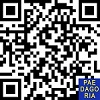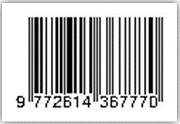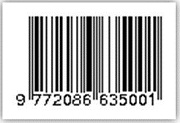DEVELOPMENT OF HTML5 FLIP-ASSISTED ELECTRONIC MODULE CULTURAL HERITAGE MATERIAL FOR GRADE 5 ELEMENTARY SCHOOL STUDENTS
Abstract
Keywords
Full Text:
PDFReferences
Abdulatif, S., & Muh. Husen Arifin. (2023). Development of Digital Storybook Media in Social Studies Learning Islamic Kingdom Materials Class IV Elementary School. Journal of Elementary Education, 6(4), 1610–1623. https://doi.org/10.31949/jee.v6i4.7200
Afida, F. R., Nurhayati, E., & Dewi, G. K. (2024). Development of FlipHTML5 E-Module in Indonesian Language Learning Class IV. JIIP - Scientific Journal of Educational Sciences, 7(3), 3256–3263. https://doi.org/10.54371/jiip.v7i3.4183
Agung, T. M. D. G., Abizar, H., & Nurhaji, S. (2021). Video Learning Media Tutorial on the Competency of Tune Up EFI Machine at SMKN 2 Pandeglang. Journal of Mechanical Engineering Education, 21(1), 23–27. https://journal.unnes.ac.id/nju/index.php/JPTM/article/view/28614
Akbar, S. (2017). Learning Tools Instruments. Remaja Rosda Karya.
Amril, K. J., & Thahar, H. E. (2022). Development of Electronic Module for Writing Short Story Texts Based on Project Based Learning for Grade XI High School Students. Diglossia: Journal of the Study of Language, Literature, and Its Teaching, 5(3), 715–730. https://doi.org/10.30872/diglosia.v5i3.489
Chintya, O., & Risda, A. (2023). Development of ARIAS Model-Based Pop Up Book Learning Media in Grade III Elementary School. Journal of Elementary Education, 6(2), 612–617. https://doi.org/10.31949/jee.v6i2.5380
Efendi, Y. A., Adi, E. P., & Sulthoni. (2020). Development of Motion Graphics Animation Video Media in Science Subjects at SDN Pandanrejo 1, Malang Regency. JINOTEP (Journal of Learning Technology Innovation), 6(2), 97–102. https://doi.org/10.17977/um031v6i22020p097
Etanastia, D., Noviyana, H., & A. B., J. S. (2022). The development of electronic modules based on a contextual approach on the subject of building flat side spaces. JOURNAL E-DuMath, 8(1), 8–14. https://doi.org/10.52657/je.v8i1.1640
Fajrie, N., Aryani, V., & Kironoratri, L. (2024). Digital learning media based on local wisdom as a source of reading children's literary fairy tales. Journal of Elementary Education, 7(1), 2262–2275. https://doi.org/10.31949/jee.v7i1.8123
Faqih, A., Nurdiawan, O., & Setiawan, A. (2021). Development of Ethnomathematics-Based Traditional Cooking Tools Interactive Multimedia Learning Media. Mosharafa: Journal of Mathematics Education, 10(2), 301–310.
Febrista, D., & Efrizon, E. (2021). Development of Android-Based Interactive e-Modules on the Subject of Applying Electronics Series Class XI Video Audio Engineering. Vocational Engineering Electronics and Informatics, 9(3), 102. https://doi.org/10.24036/voteteknika.v9i3.113750
Handiar, A., & Zulherman. (2023). FlipHTML5 Assisted E-Book to Improving Elementary School Students’ Motivation. International Journal of Elementary Education, 7(3), 375–381. https://doi.org/10.23887/ijee.v7i3.61566
Juniati, G. A. P. E., Putrayasa, I. B., & Margunayasa, I. G. (2023). Development of Digital Teaching Materials Oriented to Wana Kerthi Loka Bali in Elementary School Grade IV Science Learning. PENDASI: Indonesian Journal of Basic Education |, 7(1), 94–106. https://doi.org/10.23887/jurnal_pendas.v7i1.2018
Marhayani, D. A., Kariadi, D., & Setyowati, R. (2025). Developing The E-Module of The Cidayu (Chinese, Dayak, and Malay) Community’s Local Wisdom Using Fliphtml5 Software. Journal of Education: Journal of Research and Literature Review in the Field of Education, Teaching and Learning, 11(1), 316–326. https://doi.org/10.33394/jk.v11i1.13415
Meidaluna, G., & Anggapuspa, M. L. (2020). Board Game Design for the Introduction of Indonesian Traditional Dance as a Learning Media for Grade 5 Elementary School. Journal of Barik, 1(2), 166–183.
Memmedova, K., & Ertuna, B. (2024). Development of a fuzzy Likert scales to measure variables in social sciences. Information Sciences, 654, 119792. https://doi.org/https://doi.org/10.1016/j.ins.2023.119792
Muhaimin, M., Hamidaturrohmah, Wahyudin, N. A., & Fasha, N. A. (2023). Development of Multicultural Education E-Modules Based on Additive Approach for Elementary School Students. Journal of Elementary Education, 6(3), 1446–1453. https://doi.org/10.31949/jee.v6i3.6372
Mulhayatiah, Purwanti, Setya, W., Suhendi, H. Y., Kariadinata, R., & Hartini, S. (2019). The Impact of Digital Learning Module in Improving Students' Problem-Solving SKills. Al-BiRuNi Physics Education Scientific Journal, 08(April), 11–22. https://doi.org/10.24042/jipfalbiruni.v8i1.3150
Nunung, R., Kusyanti, T., Tempel, S., Sleman, K., & Yogyakarta, D. I. (2021). International Journal of Active Learning Development of Interactive Digital Module Based on Virtual Laboratories in The Covid-19 Pandemic Era in Dynamic Fluid Materials. 6(1), 41–48.
Putri, A., & Reinita. (2023). The Validity and Practicality of Digital Module Development Using the Professional PDF Flip Application in Class IV. Journal of Elementary Education, 6(3), 1066–1081. https://doi.org/10.31949/jee.v6i3.6565
Rahmiati, Saputra, I., & Oktarina, R. (2023). Interactive Electronic Module : Is it Beneficial for Learning ? Journal for Lesson and Learning Studies, 6(2), 209–218. https://doi.org/10.23887/jlls.v6i2.60477
Shrestha, S., Dahlke, S., Butler, J. I., Hunter, K., Fox, M. T., Davidson, S., Chasteen, A. L., & Moody, E. (2024). Nursing Students’ Perceptions on a Pain Management E- Learning Module: An Exploratory Quantitative Study. Pain Management Nursing, 25(2), e138–e143. https://doi.org/https://doi.org/10.1016/j.pmn.2023.12.010
Sumartini, & Sthevany, K. S. H. (2020). Quality Control Study of Precooked Tuna Loin Products Frozen Using the Likert Scale Method in Tuna X Freezing Companies. Aurelia Journal, 2(1), 29–38. https://doi.org/10.15578/aj.v2i1.9392
Wahyuni, D., Sari, M., & Hurriyah. (2020). The Effectiveness of Problem-Solving-Based e-Modules on Students' Critical Thinking Skills. Natural Science: Journal of Research in Science and Science Education, 6(2), 180–189. https://doi.org/10.15548/nsc.v6i2.1709
Wati, D. K., Saragih, S., & Murni, A. (2022). Validity and Practicality of FlipHtml5 Assisted Mathematics Teaching Materials to Facilitate Mathematical Comprehension Abilities of Grade VIII Junior High School / MTs Students on Cartesian Coordinate Material. Journal for Research in Mathematics Learning, 5(4), 287. https://doi.org/10.24014/juring.v5i4.16717
Wibawati, D., & Prabhawati, A. (2021). Indonesia's efforts in promoting culinary tourism as a world cultural heritage. Journal of Tourism and Creativity, 5(1), 36–44. https://doi.org/10.22141/2224-0721.16.4.2020.208486
Wulan, R., Baihaqie, A. D., Saputra, S., & Saputra, E. (2023). Implementation of Integrated Digital E-Module of Learning Media as a Support for Innovative Competencies of Teachers at SMPN 271 Jakarta. Journal of PkM (Community Service), 6(2), 230. https://doi.org/10.30998/jurnalpkm.v6i2.17872
Yamashita, T. (2022). Analyzing Likert scale surveys with Rasch models. Research Methods in Applied Linguistics, 1(3), 100022. https://doi.org/10.1016/j.rmal.2022.100022
Yoonjoung, C., Kim, B., Park, K., & Back, R. M. (2022). A comparison of Best-Worst Scaling and Likert Scale methods on peer-to-peer accommodation attributes. Journal of Business Research, 148(September 2020), 368–377. https://doi.org/10.1016/j.jbusres.2022.04.064
Yudiawati, H. (2021). Management of Angklung Preservation as Intangible Cultural Heritage. Journal of Art Governance, 7(1), 31–44. https://doi.org/10.24821/jtks.v7i1.4623
Zega, Y., & Eliza, F. (2020). Development of Basic Learning Modules of Electricity and Electronics for Class X TITL SMK Negeri 1 Padang. JTEV (Journal of Electrical and Vocational Engineering), 6(2), 227. https://doi.org/10.24036/jtev.v6i2.109033
DOI: https://doi.org/10.31764/paedagoria.v16i3.29351
Refbacks
- There are currently no refbacks.
Copyright (c) 2025 Umi Nahdhiah, Sri Untari, Ratna Ekawati

This work is licensed under a Creative Commons Attribution-ShareAlike 4.0 International License.
Paedagoria : Jurnal Kajian, Penelitian dan Pengembangan Kependidikan
Fakultas Keguruan & Ilmu Pendidikan | Universitas Muhammadiyah Mataram.
_______________________________________________
 | Paedagoria : Jurnal Kajian, Penelitian dan Pengembangan Kependidikan |
______________________________________________
CURRENT INDEXING:
EDITORIAL OFFICE:


















